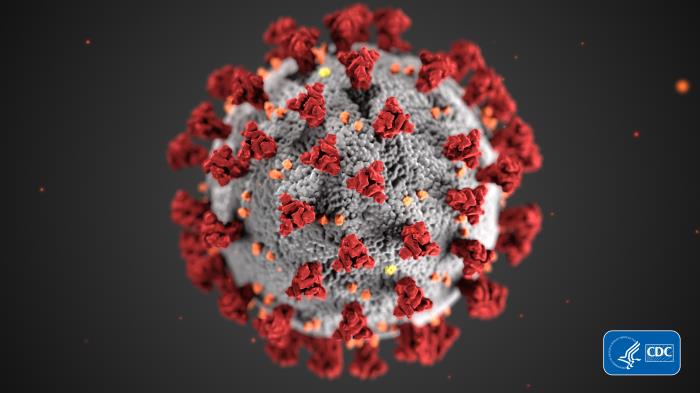
Legislation aimed at shielding Georgia businesses and health-care providers from lawsuits brought by people who contract coronavirus cleared the General Assembly Friday night during the final hours of this year’s legislative session.
The state House of Representatives passed the bill 104-56 largely along party lines, with Republicans supporting it and most Democrats voting against it. The Georgia Senate followed a short time later, approving the measure 34-16.
The bill would protect a range of Georgia enterprises from mom-and-pop shops to sports stadiums from coronavirus-related legal claims, so long as they post certain warning signs and do not willfully or grossly neglect their patrons or workers.
Hospitals and doctors’ offices would also be shielded from civil liability under the measure that lawmakers pushed through in the closing hours of the 2020 session.
Businesses and hospitals where people contract coronavirus on their premises would not be given total immunity from lawsuits under the measure, Senate Bill 359. But the bar would be set high for bringing a legal claim.
The intent is to give local businesses and health-care workers confidence their actions likely won’t lead to lawsuits as they continue struggling amid the coronavirus pandemic, supporters said.
“The COVID crisis is serious,” said House Majority Whip Trey Kelley, R-Cedartown. “It’s affected all of us. We need to offer protections to our business community and our health-care community.”
But Democrats argued the protections the bill offers to businesses would come at the expense of their workers.
“Businesses don’t get COVID. People get COVID,” said House Minority Leader Robert Trammell, D-Luthersville. “This bill doesn’t seek to protect people against COVID. It seeks to protect businesses against people.”
Under the bill, stores, stadiums, offices, hospitals and more would have to show gross or willful negligence in a way that leads people to contract coronavirus in order be held liable in court.
Businesses and health-care providers would also be protected from all but the most serious negligence cases if they install entrance signs warning patrons and patients about the dangers posed by coronavirus.
In part, the signs would have to read: “You are assuming this risk by entering these premises.”
Warning notes printed on event tickets and wristbands would also be enough to alert patrons that businesses have waived civil liability for COVID-19 claims.
Lawsuits could be brought by those who contract coronavirus or any of its mutations before July 15, 2021. Employees would still be covered under the state’s workers’ compensation laws.
The fine-tuned language for the bill was hashed out by lawmakers, business leaders, health-care professionals and trial attorneys in the hours leading up to the session’s ending Friday night.
Kelley, who oversaw negotiating in a House committee Thursday, pledged to revisit the hastily crafted bill during next year’s legislative session.
Supporters of COVID-19 liability protections framed the bill as needed to help businesses resume relatively normal operations without fear of being hammered by litiation.
Doctors and health-care workers, particularly in small communities and rural areas, would be freed up to treat patients and feel less anxious over potentially being served with a crippling lawsuit, said Bethany Sherrer, legal counsel for the Medical Association of Georgia.
“It’s been a really difficult time for smaller practices across the state,” Sherrer told House lawmakers Thursday night. “Obviously, this is really important to them.”
Hospital representatives and trial attorneys largely agreed on the details of legislation containing the liability protections in talks that stretched late into the night Thursday.
Notably, they settled on the legal standard of “gross negligence” as the liability threshold, agreeing that standard was stiff but not impossible for truly injured Georgians to seek court remedies.
“If there’s gross negligence, the assumption of risk is not going to get the venue or owner of a facility out of jail free, so to speak,” said Alan Hamilton, a trial attorney based in Atlanta and St. Simons Island. “[But only] if there’s gross negligence, which is a very high hurdle.”
Debate on the bill ran up to the final moments of the session, as several Senate lawmakers complained the “gross negligence” standard in the House bill would be too weak to protect businesses. But time had run out to make any more changes, they said.
“Unfortunately, I think we are faced with a hostage choice,” said Sen. John Kennedy, R-Macon. “It’s not where we need to be. It’s not where our businesses need to be.”
Last-minute talks also centered on whether professional and college sports teams would be protected under the liability terms if they allow fans in their stadiums when games resume.
Atlanta sports teams including the Falcons, Braves, Hawks and United all backed the bill, said Jonathan Crumly, an attorney and lobbyist representing those teams.
“We will have severe interference with sports games and professional teams having fans in the stadiums if we don’t get COVID-19 immunity passed,” Crumly told lawmakers Thursday.
But others condemned the liability protections, arguing lawsuit immunity for all but the least-safe businesses could come at the expense of workers. The Georgia branch of the AFL-CIO workers’ union called liability measures like the one passed Friday night a threat to worker health and safety.
“By shifting the responsibilities of maintaining a clean, healthy environment that offers adequate personal protective equipment, corporations can claim immunity and therefore wash their hands of any responsibility to the working men and women of our state,” the union said.